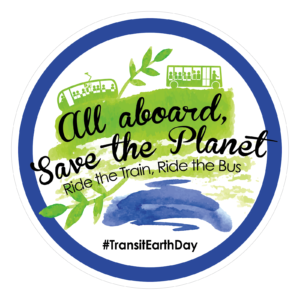
Several national and locally-based unions and organizations are joining together to make sure that Transit Equity is a key part of this year’s Earth day celebrations. We are planning a week of activities beginning April 16 to promote public transit as a civil right and a strategy to combat climate change. We seek to highlight the rights of all people to high-quality public transportation powered by clean/renewable energy. We recognize that we need a “full spectrum” just transition from the fossil fuel economy (energy, energy efficiency, transportation, waste, agriculture…) to clean, renewable energy as part of confronting the climate crisis. Increasing, non-fossil fuel, public transportation is a foundation to achieving this transition.
A just transition requires that we uphold worker and civil rights. This means that everyone should have the right and access to free (or at least affordable) public transportation regardless of age, race, or class. It also includes supporting the rights of workers to organize in the sectors that will build, operate and maintain public transportation infrastructure, as well as provide the services.
We also want to promote the principle of public vs. private investment in public transportation – the need for public resources and infrastructure (public transportation, public regulation of our energy systems, a stronger public sector overall, etc.), to lead and administer the transition to fossil fuel free public transportation.
This Organizing Toolkit will provide you with resources that will help you to organize your own activities during the week of
April 16 through Earth Day on April 22, 2018 and ways to connect to the broader network of organizations that will be taking action.
Toolkit
This Organizing Toolkit will provide you with resources that will help you to organize your own activities on Earth Day and ways to connect to the broader network of organizations that will be taking action for Transit Equity.
Includes:
- What You Can Do”
- Op-Ed Template
- Draft Resolution
- Graphics and Social Media
- Informational Palm Card
Download Toolkit
Get in Touch
If you are planning an activity between April 16 and 22 please let us know!
Or for more information, please contact:
E:
[email protected]
P:
(424) 243-6543
Or follow us on Facebook and Twitter (#transitearthday) for information on Transit Equity Earth Day as well as other ways the Labor Movement is confronting climate change


Transit Equity Day February 5th, 2018 was a Success!

Transit Equity Day was a collaborative effort of several organizations and unions to promote public transit as a civil right and a strategy to combat climate change.
On February 5, people in 15 cities celebrated the birthday of Rosa Parks with the first Transit Equity Day. Michael Leon Guerrero, Executive Director of the Labor Network for Sustainability and lead organizer for the event, gives an overview:
Dozens of organizations in at least 15 cities participated in activities recognizing Transit Equity Day (TED) on February 5. TED was a collaborative effort of an 11-organization national sponsoring committee anchored by the Labor Network for Sustainability and the Amalgamated Transit Union. February 5 was chosen to honor Rosa Parks’ birthday (Ms. Parks’ birthday is actually February 4, which landed on a Sunday this year – so February 5 was chosen as the day of action).
Organizers of the event wanted to make the connection between the legacy of the Civil Rights Movement, social justice issues related to transit today and the need for more public transit to combat climate change. As LNS historian Jeremy Brecher wrote in an op-ed circulated nationwide: “Transit Equity isn’t just about where you sit on the bus. It’s about whether you can get on a bus at all.”
The Graduate Employee Union-United Auto Workers Local 6950 at the University of Connecticut passed a resolution recognizing Transit Equity Day citing the limited transportation options of their own members to get to and from campus.
The Santa Fe, NM City Council and Mayor also passed a proclamation recognizing the day. Linda Martinez-Ortiz, Chainbreaker member and bus rider stated a common refrain throughout the country: “We need to expand service. What if I get off work and the buses are stopped? I’m stranded.”
Chainbreaker members boarded buses to distribute a new voter guide explaining where candidates stand on transit issues. “We will continue to organize after the election until true transit equity is realized in Santa Fe,” concluded Martinez-Ortiz.
In Nashville, Music City Riders United and ATU Local demanded bus safety, workforce development and more buses. Meanwhile, the metro council is considering the mayor’s $5 billion transit plan.
“Even with this transit plan, they’re saying some of this money will go to these busses but they have money that is supposed to go to these busses and they don’t go,” MCRU member Kutonya Smith-Bond said.
Georgia Stand Up, Jobs with Justice and others kicked off a week of action with a press conference that included Georgia State Senator Valencia Seay, a member of the Senate Transportation Committee. “The racist policies and planning decisions that have historically stifled MARTA’s growth in the suburbs has far reaching implications in light of the suburbanization of poverty.”
“When I moved to Clayton County and learned there was no public transportation I was floored. I was told by the then sitting commissioners that they did not want transit because it would bring the ‘wrong kind of people’. Ms. Seay helped to expand MARTA into Clayton, now a part of her district, in 2014.
“We have got to make sure that transit in Denver is accessible, affordable, and that service routes are available to all of our working families and communities,” said United for a New Economy Director Felicia Griffin. UNE and representatives from Colorado Cross-Disability Coalition, 9to5 Colorado, Mile High Connects and Montbello Organizing Committee gathered at the Civic Center Station to advocate for state lawmakers to reduce a ” vendor credit” and repurpose a portion of those funds for a discounted fare program. Only the largest retailers like Walmart and Target would be affected.
RTD is also considering a fare hike in 2019. “For RTD to consistently raise the fares on a simple service that is supposed to get you from home to work, from school to work – all of the places that folks need to access to have a better, booming, vibrant economy… it is unethical, it is wrong, and it is becoming a civil rights issue,” said Jenee Donelson, the transit organizer at 9to5 Colorado.
Organizing People, Activating Leaders (OPAL) in Portland, OR won a major victory in January, securing a fare reduction program that will save $10 million for low-income bus riders in the city. OPAL organized Bus Riders United in 2010. “We build relationships with bus riders,” says Bus Riders Unite Organizer Orlando Lopez. “We get on the buses and ask people about their experiences, not to meet a quota of signatures but because we genuinely care about these stories. We help people see that telling their stories to decision makers can change the decisions.
On Transit Equity Day, OPAL and BRU members hopped on the buses to share information with riders and held a victory celebration in the evening.
Bay Area Systems Change Not Climate Change took to the streets in Berkeley, singing songs penned by Occupela. One of the songs was a takeoff of a civil rights song that began “If you miss me in the back of the bus and you can’t find me nowhere, come on over to the front of the bus I’ll be riding up there.”

If you miss me in an SUV, and you can’t find me nowhere
Come on over to the public bus, I’ll be riding right there
If you miss me in an Uber car, and you can’t find me nowhere
Come on over to a BART train, I’ll be riding right there…
Sponsor Organizations






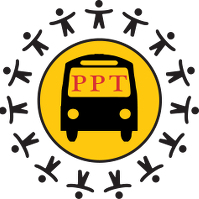

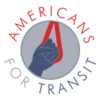


Endorsements

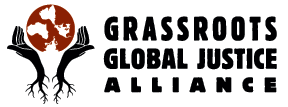
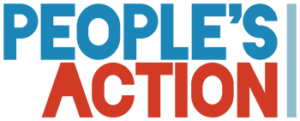
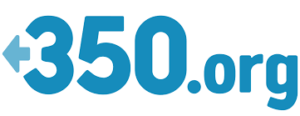


 Several national and locally-based unions and organizations are joining together to make sure that Transit Equity is a key part of this year’s Earth day celebrations. We are planning a week of activities beginning April 16 to promote public transit as a civil right and a strategy to combat climate change. We seek to highlight the rights of all people to high-quality public transportation powered by clean/renewable energy. We recognize that we need a “full spectrum” just transition from the fossil fuel economy (energy, energy efficiency, transportation, waste, agriculture…) to clean, renewable energy as part of confronting the climate crisis. Increasing, non-fossil fuel, public transportation is a foundation to achieving this transition.
A just transition requires that we uphold worker and civil rights. This means that everyone should have the right and access to free (or at least affordable) public transportation regardless of age, race, or class. It also includes supporting the rights of workers to organize in the sectors that will build, operate and maintain public transportation infrastructure, as well as provide the services.
We also want to promote the principle of public vs. private investment in public transportation – the need for public resources and infrastructure (public transportation, public regulation of our energy systems, a stronger public sector overall, etc.), to lead and administer the transition to fossil fuel free public transportation.
This Organizing Toolkit will provide you with resources that will help you to organize your own activities during the week of April 16 through Earth Day on April 22, 2018 and ways to connect to the broader network of organizations that will be taking action.
Several national and locally-based unions and organizations are joining together to make sure that Transit Equity is a key part of this year’s Earth day celebrations. We are planning a week of activities beginning April 16 to promote public transit as a civil right and a strategy to combat climate change. We seek to highlight the rights of all people to high-quality public transportation powered by clean/renewable energy. We recognize that we need a “full spectrum” just transition from the fossil fuel economy (energy, energy efficiency, transportation, waste, agriculture…) to clean, renewable energy as part of confronting the climate crisis. Increasing, non-fossil fuel, public transportation is a foundation to achieving this transition.
A just transition requires that we uphold worker and civil rights. This means that everyone should have the right and access to free (or at least affordable) public transportation regardless of age, race, or class. It also includes supporting the rights of workers to organize in the sectors that will build, operate and maintain public transportation infrastructure, as well as provide the services.
We also want to promote the principle of public vs. private investment in public transportation – the need for public resources and infrastructure (public transportation, public regulation of our energy systems, a stronger public sector overall, etc.), to lead and administer the transition to fossil fuel free public transportation.
This Organizing Toolkit will provide you with resources that will help you to organize your own activities during the week of April 16 through Earth Day on April 22, 2018 and ways to connect to the broader network of organizations that will be taking action.
 Transit Equity Day was a collaborative effort of several organizations and unions to promote public transit as a civil right and a strategy to combat climate change.
On February 5, people in 15 cities celebrated the birthday of Rosa Parks with the first Transit Equity Day. Michael Leon Guerrero, Executive Director of the Labor Network for Sustainability and lead organizer for the event, gives an overview:
Dozens of organizations in at least 15 cities participated in activities recognizing Transit Equity Day (TED) on February 5. TED was a collaborative effort of an 11-organization national sponsoring committee anchored by the Labor Network for Sustainability and the Amalgamated Transit Union. February 5 was chosen to honor Rosa Parks’ birthday (Ms. Parks’ birthday is actually February 4, which landed on a Sunday this year – so February 5 was chosen as the day of action).
Organizers of the event wanted to make the connection between the legacy of the Civil Rights Movement, social justice issues related to transit today and the need for more public transit to combat climate change. As LNS historian Jeremy Brecher wrote in an op-ed circulated nationwide: “Transit Equity isn’t just about where you sit on the bus. It’s about whether you can get on a bus at all.”
The Graduate Employee Union-United Auto Workers Local 6950 at the University of Connecticut passed a resolution recognizing Transit Equity Day citing the limited transportation options of their own members to get to and from campus.
The Santa Fe, NM City Council and Mayor also passed a proclamation recognizing the day. Linda Martinez-Ortiz, Chainbreaker member and bus rider stated a common refrain throughout the country: “We need to expand service. What if I get off work and the buses are stopped? I’m stranded.”
Chainbreaker members boarded buses to distribute a new voter guide explaining where candidates stand on transit issues. “We will continue to organize after the election until true transit equity is realized in Santa Fe,” concluded Martinez-Ortiz.
In Nashville, Music City Riders United and ATU Local demanded bus safety, workforce development and more buses. Meanwhile, the metro council is considering the mayor’s $5 billion transit plan.
“Even with this transit plan, they’re saying some of this money will go to these busses but they have money that is supposed to go to these busses and they don’t go,” MCRU member Kutonya Smith-Bond said.
Georgia Stand Up, Jobs with Justice and others kicked off a week of action with a press conference that included Georgia State Senator Valencia Seay, a member of the Senate Transportation Committee. “The racist policies and planning decisions that have historically stifled MARTA’s growth in the suburbs has far reaching implications in light of the suburbanization of poverty.”
“When I moved to Clayton County and learned there was no public transportation I was floored. I was told by the then sitting commissioners that they did not want transit because it would bring the ‘wrong kind of people’. Ms. Seay helped to expand MARTA into Clayton, now a part of her district, in 2014.
“We have got to make sure that transit in Denver is accessible, affordable, and that service routes are available to all of our working families and communities,” said United for a New Economy Director Felicia Griffin. UNE and representatives from Colorado Cross-Disability Coalition, 9to5 Colorado, Mile High Connects and Montbello Organizing Committee gathered at the Civic Center Station to advocate for state lawmakers to reduce a ” vendor credit” and repurpose a portion of those funds for a discounted fare program. Only the largest retailers like Walmart and Target would be affected.
RTD is also considering a fare hike in 2019. “For RTD to consistently raise the fares on a simple service that is supposed to get you from home to work, from school to work – all of the places that folks need to access to have a better, booming, vibrant economy… it is unethical, it is wrong, and it is becoming a civil rights issue,” said Jenee Donelson, the transit organizer at 9to5 Colorado.
Organizing People, Activating Leaders (OPAL) in Portland, OR won a major victory in January, securing a fare reduction program that will save $10 million for low-income bus riders in the city. OPAL organized Bus Riders United in 2010. “We build relationships with bus riders,” says Bus Riders Unite Organizer Orlando Lopez. “We get on the buses and ask people about their experiences, not to meet a quota of signatures but because we genuinely care about these stories. We help people see that telling their stories to decision makers can change the decisions.
On Transit Equity Day, OPAL and BRU members hopped on the buses to share information with riders and held a victory celebration in the evening.
Bay Area Systems Change Not Climate Change took to the streets in Berkeley, singing songs penned by Occupela. One of the songs was a takeoff of a civil rights song that began “If you miss me in the back of the bus and you can’t find me nowhere, come on over to the front of the bus I’ll be riding up there.”
Transit Equity Day was a collaborative effort of several organizations and unions to promote public transit as a civil right and a strategy to combat climate change.
On February 5, people in 15 cities celebrated the birthday of Rosa Parks with the first Transit Equity Day. Michael Leon Guerrero, Executive Director of the Labor Network for Sustainability and lead organizer for the event, gives an overview:
Dozens of organizations in at least 15 cities participated in activities recognizing Transit Equity Day (TED) on February 5. TED was a collaborative effort of an 11-organization national sponsoring committee anchored by the Labor Network for Sustainability and the Amalgamated Transit Union. February 5 was chosen to honor Rosa Parks’ birthday (Ms. Parks’ birthday is actually February 4, which landed on a Sunday this year – so February 5 was chosen as the day of action).
Organizers of the event wanted to make the connection between the legacy of the Civil Rights Movement, social justice issues related to transit today and the need for more public transit to combat climate change. As LNS historian Jeremy Brecher wrote in an op-ed circulated nationwide: “Transit Equity isn’t just about where you sit on the bus. It’s about whether you can get on a bus at all.”
The Graduate Employee Union-United Auto Workers Local 6950 at the University of Connecticut passed a resolution recognizing Transit Equity Day citing the limited transportation options of their own members to get to and from campus.
The Santa Fe, NM City Council and Mayor also passed a proclamation recognizing the day. Linda Martinez-Ortiz, Chainbreaker member and bus rider stated a common refrain throughout the country: “We need to expand service. What if I get off work and the buses are stopped? I’m stranded.”
Chainbreaker members boarded buses to distribute a new voter guide explaining where candidates stand on transit issues. “We will continue to organize after the election until true transit equity is realized in Santa Fe,” concluded Martinez-Ortiz.
In Nashville, Music City Riders United and ATU Local demanded bus safety, workforce development and more buses. Meanwhile, the metro council is considering the mayor’s $5 billion transit plan.
“Even with this transit plan, they’re saying some of this money will go to these busses but they have money that is supposed to go to these busses and they don’t go,” MCRU member Kutonya Smith-Bond said.
Georgia Stand Up, Jobs with Justice and others kicked off a week of action with a press conference that included Georgia State Senator Valencia Seay, a member of the Senate Transportation Committee. “The racist policies and planning decisions that have historically stifled MARTA’s growth in the suburbs has far reaching implications in light of the suburbanization of poverty.”
“When I moved to Clayton County and learned there was no public transportation I was floored. I was told by the then sitting commissioners that they did not want transit because it would bring the ‘wrong kind of people’. Ms. Seay helped to expand MARTA into Clayton, now a part of her district, in 2014.
“We have got to make sure that transit in Denver is accessible, affordable, and that service routes are available to all of our working families and communities,” said United for a New Economy Director Felicia Griffin. UNE and representatives from Colorado Cross-Disability Coalition, 9to5 Colorado, Mile High Connects and Montbello Organizing Committee gathered at the Civic Center Station to advocate for state lawmakers to reduce a ” vendor credit” and repurpose a portion of those funds for a discounted fare program. Only the largest retailers like Walmart and Target would be affected.
RTD is also considering a fare hike in 2019. “For RTD to consistently raise the fares on a simple service that is supposed to get you from home to work, from school to work – all of the places that folks need to access to have a better, booming, vibrant economy… it is unethical, it is wrong, and it is becoming a civil rights issue,” said Jenee Donelson, the transit organizer at 9to5 Colorado.
Organizing People, Activating Leaders (OPAL) in Portland, OR won a major victory in January, securing a fare reduction program that will save $10 million for low-income bus riders in the city. OPAL organized Bus Riders United in 2010. “We build relationships with bus riders,” says Bus Riders Unite Organizer Orlando Lopez. “We get on the buses and ask people about their experiences, not to meet a quota of signatures but because we genuinely care about these stories. We help people see that telling their stories to decision makers can change the decisions.
On Transit Equity Day, OPAL and BRU members hopped on the buses to share information with riders and held a victory celebration in the evening.
Bay Area Systems Change Not Climate Change took to the streets in Berkeley, singing songs penned by Occupela. One of the songs was a takeoff of a civil rights song that began “If you miss me in the back of the bus and you can’t find me nowhere, come on over to the front of the bus I’ll be riding up there.”













